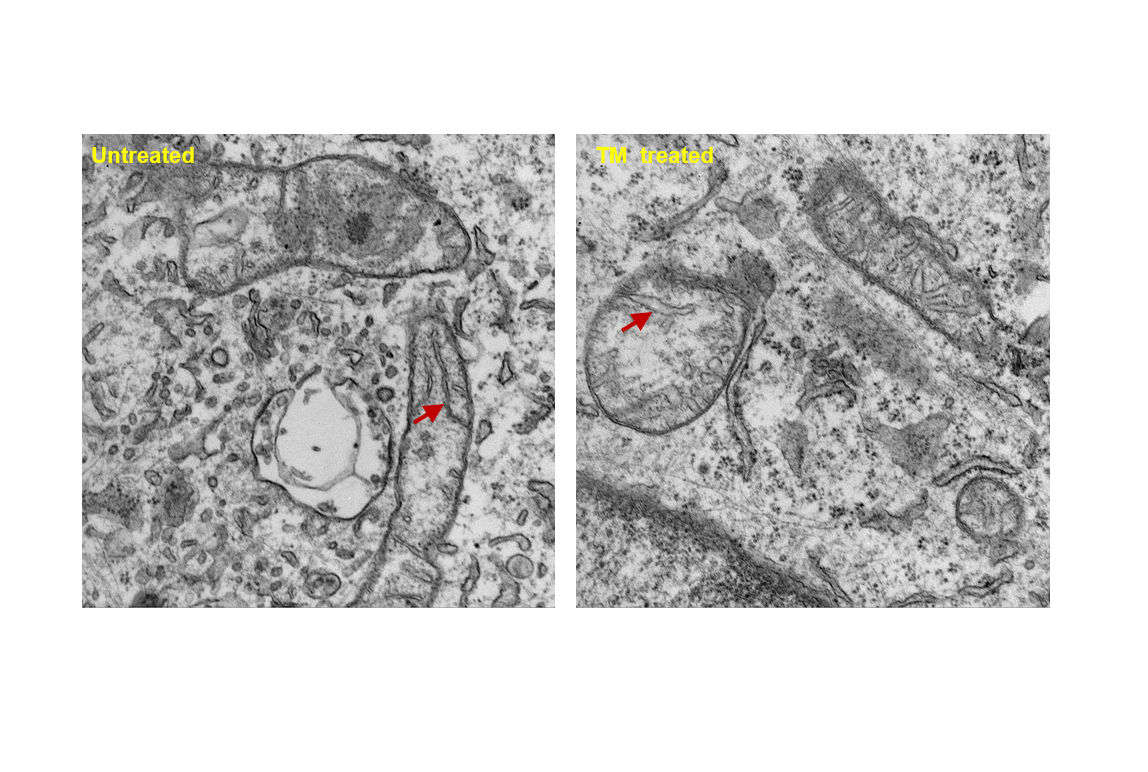
Transmission electron microscopy images showing TM-mediated changes in the cristae (arrow) inside the mitochondria of cancer cells, which contribute to cellular metabolism. Image courtesy of Dr. Divya Ramchandani, Juan Pablo Jimenez and Leona Cohen-Gould.
Depleting copper levels may reduce the production of energy that cancer cells need to travel and establish themselves in other parts of the body by a process referred to as metastasis, according to a new study by investigators from Weill Cornell Medicine and Memorial Sloan Kettering Cancer Center (MSK). The discovery of the underlying mechanisms of how copper depletion may help reduce metastasis in breast cancer will help inform the design of future clinical trials.
In a series of research papers from 2013 to 2021, Weill Cornell Medicine researchers showed that in a phase II clinical trial when patients who had high-risk triple-negative breast cancer (TNBC) were treated with a drug that lowers the levels of copper in their bodies, it prolonged the period of time before their cancer recurred and spread or metastasized. In the current study, published Dec. 15 in Nature Communications, and led by first author Divya Ramchandani, a research associate in Cardiothoracic Surgery at Weill Cornell Medicine, the investigators used animal models to take a closer look at why that was the case. Click here to read the full article.